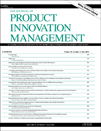 Back in January 2013, we wrote about the retraction of a paper in Diabetes that the authors had “submitted without knowledge of inherent errors or abnormalities that they recognized in retrospect after submission.”
Back in January 2013, we wrote about the retraction of a paper in Diabetes that the authors had “submitted without knowledge of inherent errors or abnormalities that they recognized in retrospect after submission.”
Now, Molecular Pain has retracted a paper by the same authors, this time for data manipulation. The article, “Comparison of central versus peripheral delivery of pregabalin in neuropathic pain states,” was written by Cory Toth, a clinical neuroscientist at the University of Calgary, in Canada, and colleagues. It has been cited eight times, according to Thomson Scientific’s Web of Knowledge.
Toth said of the Diabetes article at the time:
Continue reading Pain study retracted for bogus data is second withdrawal for University of Calgary group







